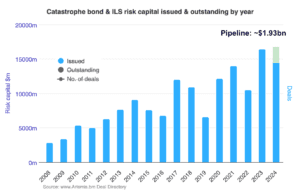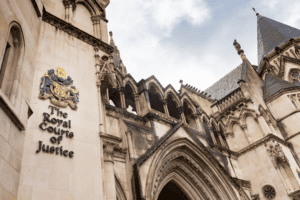NCOIL adopts two model insurance laws

“It was great to preside over the work this committee did in the past year that led to the adoption of these models, which deal with two timely and important issues facing the property and casualty marketplace right now,” Rowland said. “It has been a great honor to chair this committee, and while I am leaving the Kentucky legislature, and thus NCOIL, at the end of this year, I look forward to seeing how the organization will continue to address these important issues going forward.”
The NCOIL DNC Insurance Model Act provides a structure for insurance requirements for companies, such as Grubhub and Drizly, that let people use their personal vehicles to deliver food or beverages. Many elements of the model law are based on elements of the NCOIL Transportation Network Company (tNC) Insurance Model Act, which NCOIL adopted in 2015 to address the entry of companies like Uber and Lyft into the marketplace.
The TNC model has since been used as the basis for nearly every state’s TNC law, NCOIL said. The organization said the DNC model was necessary to convey the differences in risk between transporting people and transporting goods.
“I was proud to sponsor the DNC Model Act,” Rowland said. “As people increasingly use these services, it is crucial to ensure proper coverage. The TNC Model serves as a framework in virtually every state in the nation, and I’m sure this model will similarly prove to be very useful to legislators in all 50 states.”
“It was great to see the swift adoption of this model as it shows legislation, and NCOIL, can keep up with innovation as the DNC market continues to expand,” said West Virginia Delegate Steve Westfall, who co-sponsored the DNC Model. “I think everyone would agree that insurance protection is essential, but the same level of coverage is not required for a sandwich as there is for a family.”
Read next: NCOIL member appointed to federal insurance committee
The NCOIL Dog Breed Insurance Underwriting Protection Model Act addresses how dog breeds can factor into underwriting for homeowners and rental insurance policies. The model prohibits insurers from refusing to issue, cancel, renew or increase a premium or rate for an insurance policy based solely on the specific breed of a dog owned on an applicable property, NCOIL said.
“One of the most important attributes of National Council of Insurance Legislators meetings is the opportunity to lower the temperature on polarizing issues,” Cahill said. “The proceedings surrounding the adoption of a model law that prohibits insurance companies from making arbitrary underwriting decisions based upon the breed of a dog is one such example. Passionate advocates and skeptical legislators used NCOIL to educate each other and hash out differences to come to a widely accepted result that will undoubtedly guide state legislatures across the country, while also raising awareness of important insurance concepts.
“When we first discussed this topic at our annual meeting last year, it seemed unlikely we would be able to get a model over the finish line because of how far apart legislators and interested parties were on the issue,” said Connecticut Rep. Tammy Nuccio, who co-sponsored the model legislation. “Luckily, everyone recognized how important this issue is, and we were able to reach a compromise that will provide a great framework for states to use.”
“Thank you to the committee for working tirelessly this year to get these two important models to a place where they were ready to be voted on,” said Tom Considine, CEO of NCOIL. “For a while it seemed like voting on the models in November would be unlikely, as Chair Rowland set an ambitious timeline, but everyone rose to the occasion and recognized the importance of producing models here at NCOIL that can be used as the basis for similar state laws next year. I’d also like to thank Representative Rowland specifically for his leadership in chairing this committee as well as his broader service here at NCOIL, as he will be leaving the Kentucky legislature at the end of this year. We all owe him a debt of gratitude for his service.”
Full copies of the model legislation can be viewed on NCOIL’s website.
Have something to say about this story? Let us know in the comments below.





